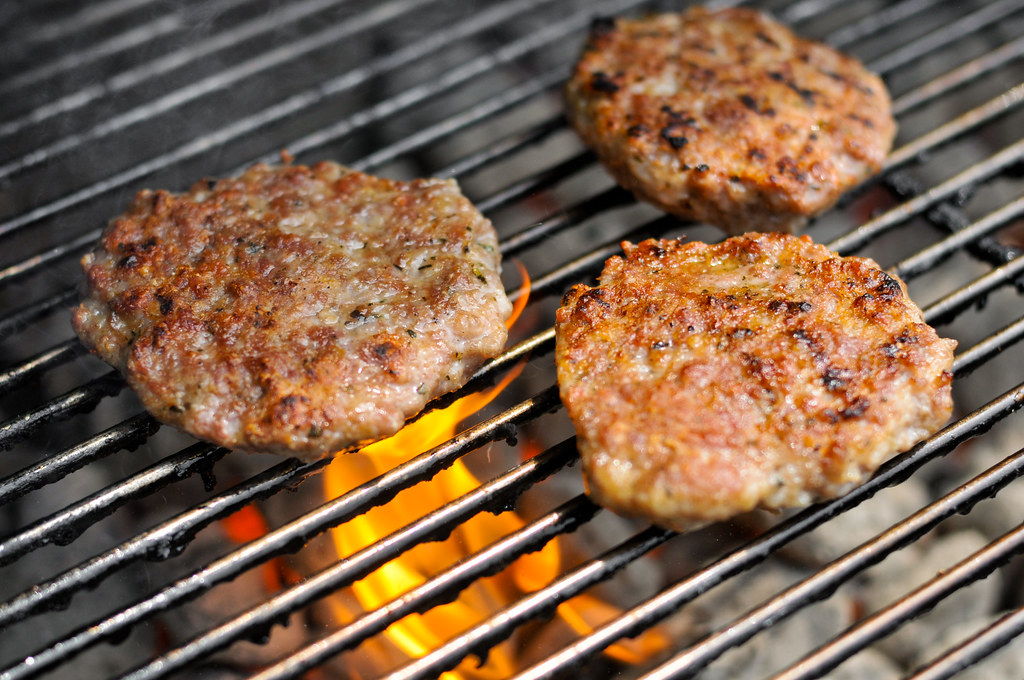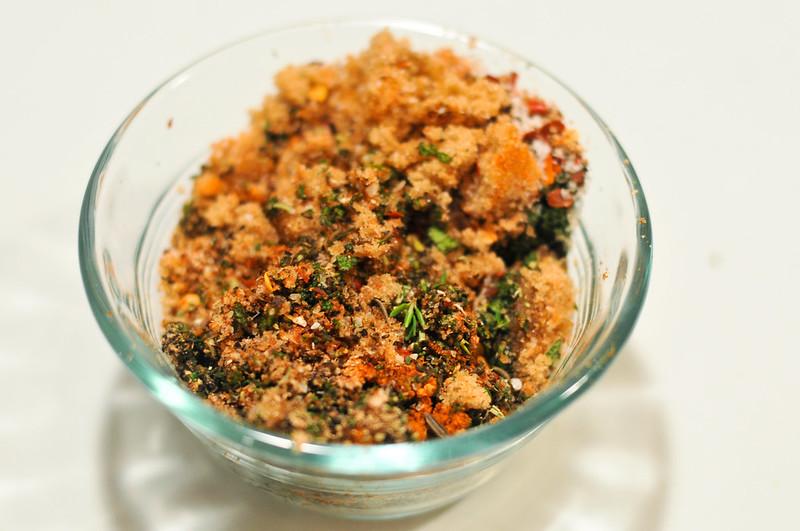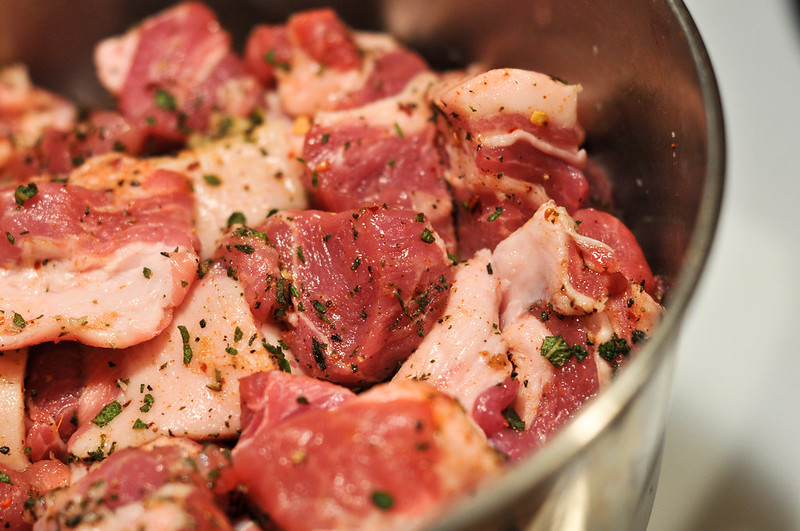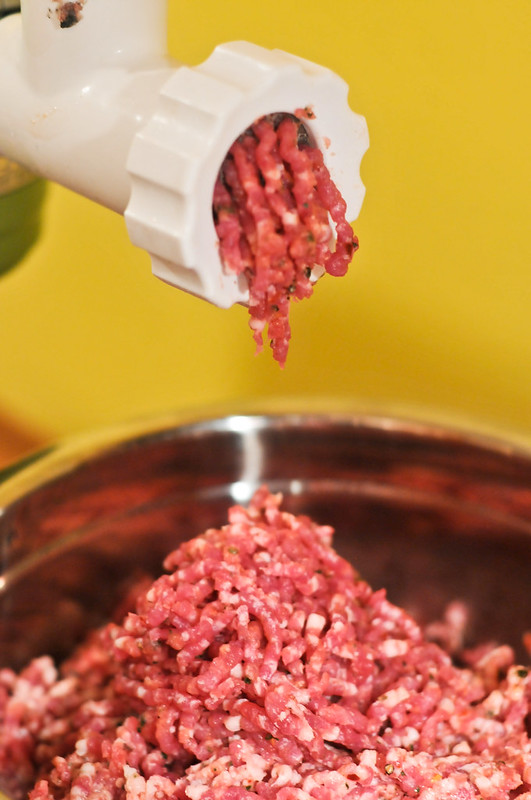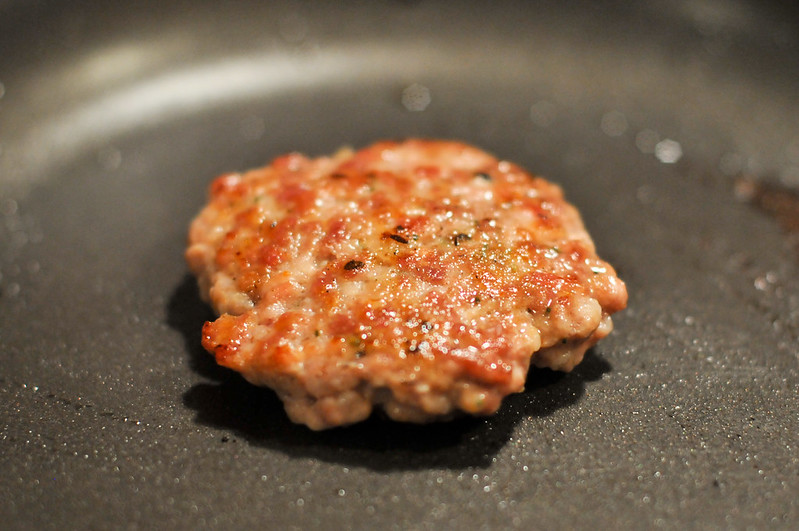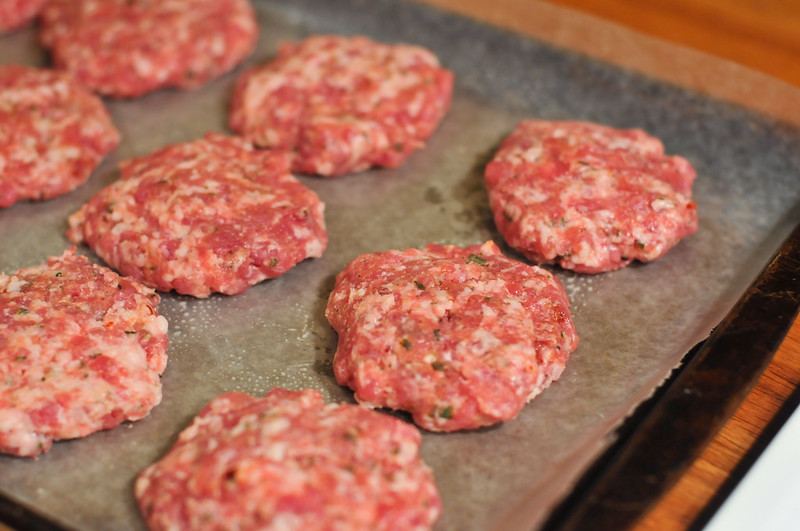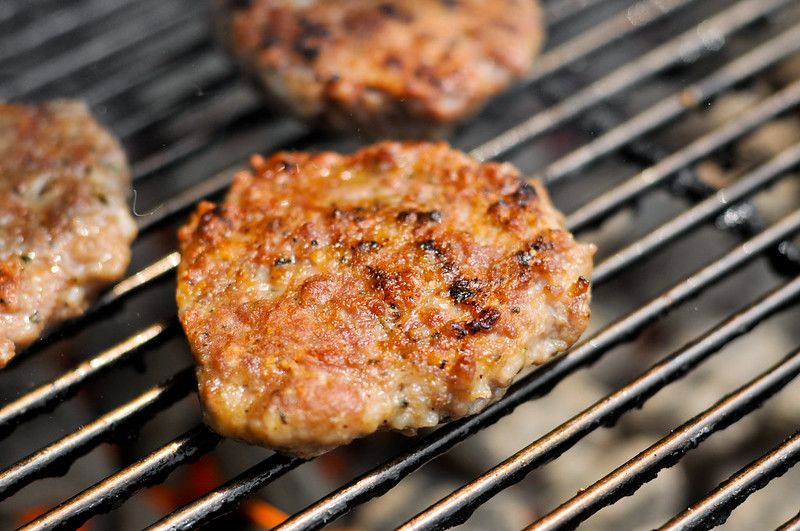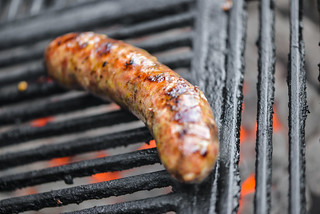Breakfast Sausage
I go straight into hoarding mode at the first sign of cooling air. My summer freezer, once bare except a bag of ice and a container of homemade ice cream, starts filling with meats to get me through the fall and winter. One thing that's hard to live without during the cold winter months is a good breakfast sausage—perfect for a cold, lazy winter morning with some eggs and toast. Of course, whatever you don't freeze right away is prime for grilling while there's still light and the mornings are more brisk than frigid.
Before making breakfast sausage, I never really considered what made it taste the way it did—breakfast sausage was just a flavor definition in its own right. To demystify this sausage, I turned to Alton Brown, whose recipes I've often used as building blocks, but in the case of this recipe, I've found no reason to veer from he's already perfected.
Diced pork butt and fat back formed the base of the sausage, which was tossed with a mixture of salt, black pepper, sage, thyme, rosemary, brown sugar, nutmeg, cayenne, and red pepper flakes. The pork was then given a rest in the fridge to let some of those diverse seasonings sink in.
The meat then got a single pass through the small die of a grinder, where all the seasonings became incredibly well embedded into the pork. As with any sausage, it's best to grind into a bowl set in ice water to keep the meat mixture as cold as possible to prevent the fat from melting.
A taste patty confirmed the seasonings were right on. When making homemade sausages, this is an incredibly important step as it's your last chance to get seasonings right before forming patties or stuffing the sausage into casings. I learned this the hard way when I didn't test one of my earlier sausages only to find out I left out an important ingredient after I completed all of the stuffing.
Hog casings are my go-to for finishing up the sausage process—who doesn't like the snap of a hot casing, followed by juicy innards—but breakfast sausage is one I actually prefer in patty form. On almost all of my sausage recipes, the act of stuffing seems to induce fear to at least one person (it really shouldn't), so this should be a welcome change for some.
At this point the sausage can be frozen and enjoyed as you need them throughout the entire winter. It can be hard to wait for something so delicious though, so I recommend taking a few out to the grill right away.
The high heat creates a a great crisp and brown crust, and without the fat splatter mess that plagues the skillet method. What comes off the flames is a delectable mixture of sweet, spicy, fresh, and meaty that makes any fall or winter morning feel complete.
You Might Also Like
Comments
-
mwainer I've noticed that most sausage recipes call for fatback. Unfortunately, I haven't been able to find any locally. What they DO have is salt pork (pretty heavy on the fat). What's the difference? Is salt pork an acceptable substitute? If not, then what? (Preferably something that is available locally - I really don't want to get into the expense of mail-ordering ingredients.)
-
Josh @mwainer Since salt pork has been salt cured and is very salty, it's not a great substitute as is. You can, however, blanch the salt pork to try to remove some of the saltiness. If you do that, try cutting the salt in any sausage recipe since the salt pork might already be providing enough. If you have a local butcher, I'd recommend asking them to order you fat back. They usually know where to get it and are happy to help.
-
Keeley @My Life on a Plate Thank you for sharing this recipe! I've found a new use for the Kitchen Aid Meat Grinder Attachment my husband bought me last Christmas!
-
Thomas I have found myself referring to Alton recipes as I start venturing into sausage making. Would you have any objection to freezing this stuff after it's all prepared?
Keep up the good work, I enjoy reading your posts. -
Josh @Thomas I freeze mine after they're formed into patties and before they're cooked. Then defrost them as needed. They should keep for about 6 months in the freezer, but I've never had them last that long without me eating them.
-
Chris Exceptional tip on grinding into an iced bowl. I've been missing that step.
-
mwainer Keeping the meat cold is important. I believe both Kenji and Alton Brown recommend chilling the meat grinder attachment in the freezer before grinding.
-
Josh @mwainer Yup, thanks for pointing that out. I always freeze my meat grinder for about 1/2 an hour before making sausage. Unfortunately the KA grinder I use is plastic and doesn't keep as cold as a metal one would, but seems to do the job well enough.
-
Bert instead of fatback can i just use fat i've trimmed from a loin??? thanks Josh
-
Josh @Bert Yeah, the important this is to just get that fat content up, fatback is usually just the easiest way to do that.
-
Tabitha No fennel? How about using dried herbs? And also, how about baking them? Thanks!
